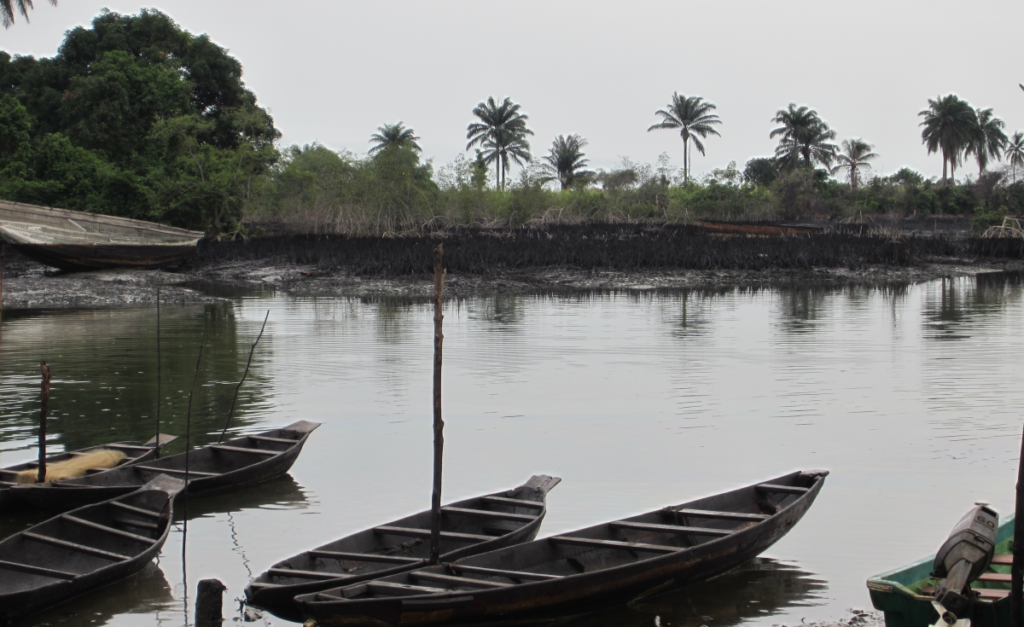Following the incidence of the 1,000-tonne oil spill that occurred in the coastal environment of Mauritius, Oilwatch Africa has warned that African leaders must not allow continent to drown in crude oil.

The warning comes after Mauritius’ Prime Minister, Pravind Jugnauth, declared a state of environmental emergency in Mauritius on recognition of the oil spill as an ecological disaster.
Oilwatch noted that at a moment in history when science has clearly shown that dependence on fossil fuel is dramatically fuelled global warming, this is not time for African nations to fix their eyes on fossil fuels as the commodities to fuel any change other than climate change.
According to the group, many African countries are ramping up investments in the extractive sector “at a time when oil companies are in dire financial straits, are seeking bailouts, with some closing shop. Divestments and low demands primed by the COVID-19 pandemic, have pushed oil prices to record lows and thrown some national economies into chaos”.
To Nnimmo Bassey, director of Health of Mother Earth Foundation (HOMEF) and a Steering Committee member of Oilwatch Africa/International, the ecological disaster brought about by the running aground of a Japanese-owned ship, MV Wakashio, is a big warning to the continent.
“Africa is wholly surrounded by water and is literally encircled by ships with diverse cargoes. Urgent steps must be taken by the African Union and in particular African countries to ensure that vessels circling the continent are seaworthy and do not have toxic wares as their merchandise,” he said.
Oilwatch noted the right step taken by the president of Mauritius in declaring a state of environmental emergency over the oil spills. The group noted that responses so far, and experiences from oil spill handling in places like Nigeria and South Sudan, shows “a massive lack of readiness for the destructive spills that are routine in those countries and elsewhere”.
Nigeria, stated Oilwatch, has recorded an average of five oil spills a day over the period 2018-2019.
Thuli Makama, member of Oilwatch Africa Steering Committee, declared: “African governments should pay more attention to the environment and not place undue focus on vanishing petrodollars. The dream of building our economies on petroleum resources is a pipedream.”
Talking on pipelines, Makama emphasised that pipelines such as the East African gas pipeline from Uganda to Tanzania would spell worse disasters when it fails and spews its heavy crude into the pristine ecosystems of the Rift Valley. She added that spill has shown how suddenly the ecological heritage can be jeopardised by fossil fuels at any time.
Oilwatch Africa, therefore, calls on African leaders to prepare for responses to disasters of the type unfolding in Mauritius.
“It is time to put in place strict laws and regulations to ensure that big polluters – fossil fuels companies as well as owners of oil tankers and similar – pay for their pollution and are held liable for related damages. The companies should equally be required to clean up their mess and not pass the costs to coastal communities and then environment.”
Patrick Bond of Oilwatch said: “African governments should finally recognise not the hucksters of a global value chain in oil, but instead the global devaluation of life due to fossil fuels addictions. We insist they turn the continent from any ruinous pathways that lead to a global petroleum value chain, and instead work with us to hasten the demise of these firms and the replacement of leaders who are their African collaborators.”
Oilwatch stresses the urgent need for a united Africa empowered with information to tackle the menace of fossil fuel extraction across the continent. The network emphasises the need for a recognition and payment of the vast ecological and other debts that is owed the continent from hundreds of years of exploitation, pillage and outright plunder through colonialism and ongoing neocolonialism.
Oilwatch also demands that nations and corporations should totally halt all new and existing fossil fuels exploration and extractive activities across Africa as a means of removing the fossil knee of extractive from the neck of Africa, to give her a chance to breathe.
“African Governments must take their responsibilities to protect the right to a healthy environment of all Africans by moving away from fossil extraction and combustion considering that this is one of the main causes of climate change. They must put the people’s rights in the centre of their decisions towards democratic energy access,” said Kwami Kpondzo, Coordinator of Oilwatch Togo.
African governments were also asked to establish climate-resilient and just recovery models, to defend communities, stop destructive extraction and support agroecology, through their leading visionary organisations in civil society.
